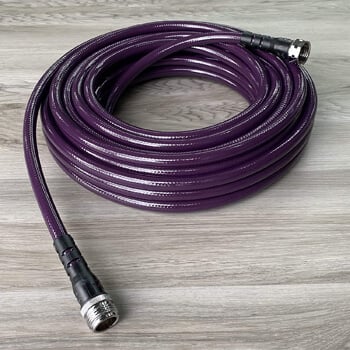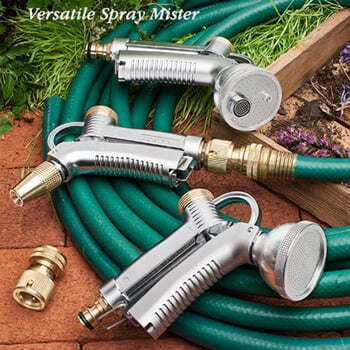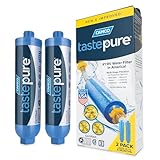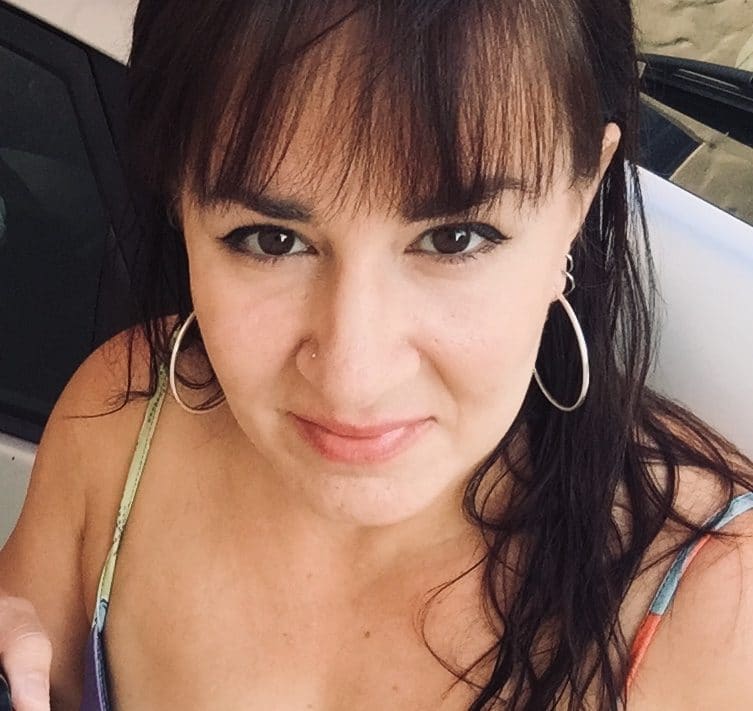It’s summer time, and it’s hot. What could be more wholesome and refreshing on a hot, sunny day than kids running through the sprinkler and drinking from the garden hose, right?
But what if that hose is delivering a large dose of heavy metals and toxic plasticizers to your children and your garden?
The Toxic Soup in Your Garden Hose
According to testing from the Ecology Center, the average garden hose delivers a veritable soup of toxins. The Center tested 32 new garden hoses from Amazon, Lowe’s, Home Depot, Walmart, Target, and Meijer, and analyzed levels of:
- lead,
- cadmium,
- tin,
- mercury,
- arsenic,
- antimony,
- bromine (associated with brominated flame retardants),
- chlorine (indicating the presence of polyvinyl chloride, or PVC),
- phthalates, and
- bisphenol A (BPA).
These metals and chemicals have been linked to birth defects, impaired learning, diabetes, obesity, liver toxicity, premature births, hormone disruption, cancer, and infertility, among other health problems.
Most of the hoses they tested were made from polyvinyl chloride (PVC), a type of plastic that often contains phthalates, BPA and organotins, all of which can interfere with hormonal and reproductive development.
38% of the hoses tested also contained bromine and antimony, chemicals that can lead to thyroid, kidney and liver damage with prolonged exposure.
The hoses were also tested for phthalates, a class of chemicals added to plastics and cosmetic products to keep them soft and flexible. Phthalates have been linked to hormonal imbalances, cancer, sterility in men, lowered IQ, and behavioral problems in children. 75% of all the PVC hoses contained phthalates, and even a few of the “drinking water safe” hoses contained phthalates!
Finally, they left 7 hoses filled with water to sit outside in the sun for two days, and then tested the water to see what was in it. The hose water contained lead, phthalates and bisphenol A at levels much higher than the drinking water limits set by the Environmental Protection Agency and the Food and Drug Administration.
If that weren’t bad enough, its not just the hose itself that is toxic. Metal fixtures on hoses aren’t required to adhere to the limits on heavy metals that home faucets are, so even if the plastic hose itself is safe, the connectors could be adding lead to your water.
One-third of hoses tested had lead levels over 100ppm. There is no safe limit for lead, and even the tiniest amounts are poisonous.
Toxic Hoses Can Pollute Your Garden Too
It’s not just your kids, livestock, and pets drinking the water that you have to worry about. Although the Ecology Center didn’t test for antimony, phthalates, or BPA in plants watered with these hoses, Jeff Gearhart, research director at Ecology Center, says it’s very possible that your hose could be contaminating your vegetable garden too.
“We know that these chemicals make it into plants,” he says, referring to studies that have found high levels of phthalates in organic food. “We just can’t show a connection between hoses and chemicals showing up in a plant yet.”
Fortunately, there are safe hoses available if you know how to find them.
How to Find a Safe Garden Hose
While no garden hose is perfect, there are a few things you can do to mitigate your risk:
Choose a polyurethane (PU) hose, instead of PVC.
Hoses made from polyurethane (PU), polyester fabric, or TPE don’t need phthalates or BPA to keep them flexible, making them safer materials to use. Avoid PVC and choose a hose made from one of these materials, that is also labeled “phthalate-free,” “BPA-free” and “UV-stabilized” (which prevents excess breakdown and leaching of chemicals when sitting in the sun).
Choose “drinking water safe” hoses.
The safest garden hoses meet FDA and NSF standards for drinking water safety, and carry the label “Drinking Water Safe.” Also look for the labels “BPA-free,” “phthalate-free,” “lead-free,” and “Meets California Prop 65 standards” (which ensures lead and phthalate levels are as low as possible).
Store your hose in a cool, dark place.
Even with UV-stabilizers, heat and sunlight can break down your hose, no matter what it’s made from. This greatly increases the likelihood of toxins leaching into your water. Keeping your hose out of the heat and sun will also greatly extend its life.
Let your hose run a bit before using the water from it.
This will flush out any metals or chemicals that have leached into the water sitting in the hose while you weren’t using it.
The Best Non-Toxic Garden Hoses
Here are our selections for the safest, non-toxic garden hoses. Each of these are, at a minimum:
- Drinking Water Safe/NSF compliant
- BPA-free (and other bisphenols like BPS, BPF, etc., if possible)
- Phthalate-free
- UV-stabilized
- Lead free/Prop 65 compliant
Water Right 500 Garden Hose

The Water Right 500 is one of the most popular brands of safe, non-toxic garden hoses. It’s key features include:
- Made from polyurethane (PU)
- Meets FDA, EPA, and NSF standards for drinking water safety
- Lead-free
- BPA-free
- Very lightweight and kink-resistant
- Comes in 25, 50, 75 and 100-foot lengths and a variety of fun colors!
- 5 year warranty
- Made in the USA
Camco EvoFlex2 Hose

Camco primarily focuses on RV supplies. They have a wide variety of drinking-water safe hoses made from different materials, but not all of them are UV-stabilized or PVC-free, so make sure to check the details of the specific product before buying. The Camco EvoFlex2 features:
- Made from polyester fabric to reduce size, weight and kinking. Comes with it’s own storage bag!
- Meets FDA, EPA, and NSF standards for drinking water safety
- NSF/ANSI certified lead-free
- BPA-free
- Phthalate-free
- Comes in 25, 35, 50 and 75-foot lengths
- 1 year warranty
- Made in the USA
Aqua Armor Garden Hose

Gilmour is a major hose brand but not all of their hoses are drinking water safe or PVC-free. However, their AquaArmor expanding hose line is made from TPE, which is a PVC alternative like polyurethane (PU) that is free from lead and phthalates. The AquaArmor hose features:
- Made from TPE for greater strength
- 50% lighter than standard hoses; lasts 10x longer than other expanding hoses
- Drinking water safe
- BPA-free
- Phthalate-free
- Lead-free
- Comes in 25, 50 and 100-foot lengths
- Lifetime warranty
- Made in the USA
Terrain Heritage Garden Hose

Available in a rainbow of exclusive colors, the Terrain Heritage hose is safe for people and pets to drink right from the spout. This hose features:
- Made from polyurethane (PU)
- Chrome-plated, lead-free brass fittings
- Very lightweight and kink resistant
- BPA-free
- Lead-free
- Phthalate-free
- Comes in 50 and 100-foot lengths and four fun colors
- 1 year warranty
- Made in the USA
Choose Non-Toxic Hose Nozzles

Although the materials in your hose nozzle aren’t as important as the hose itself, if you have pets or kids, choosing a safe spray nozzle is something to consider. You’ll want to look for the same labels that you did for your hose: “Lead-Free,” “Phthalate-Free,” and “Drinking Water Safe.”
These “buy-once, cry-once” stainless steel hose nozzles contain nearly zero plastic, and are truly Best-in-Class. Each nozzle includes a solid brass quick-change fitting so you can swap them out with a simple motion. These do cost more, but all you have to do is to pick one up to know that your children’s children will be using them.
Don’t Forget the Filter!

Why go to all the trouble of getting a non-toxic garden hose and nozzle, only to deliver water with chlorine and other chemicals already in it?
You can make the water from your hose a lot healthier for people, pets and especially plants by attaching an affordable hose filter to your outdoor spigot. This Camco inline filter—made originally for RVs—reduces bad tastes, odor, chlorine, sediment, etc. using GAC and KDF filtration.
Your garden will thank you!














12 thoughts on “Is Your Garden Hose Toxic?”